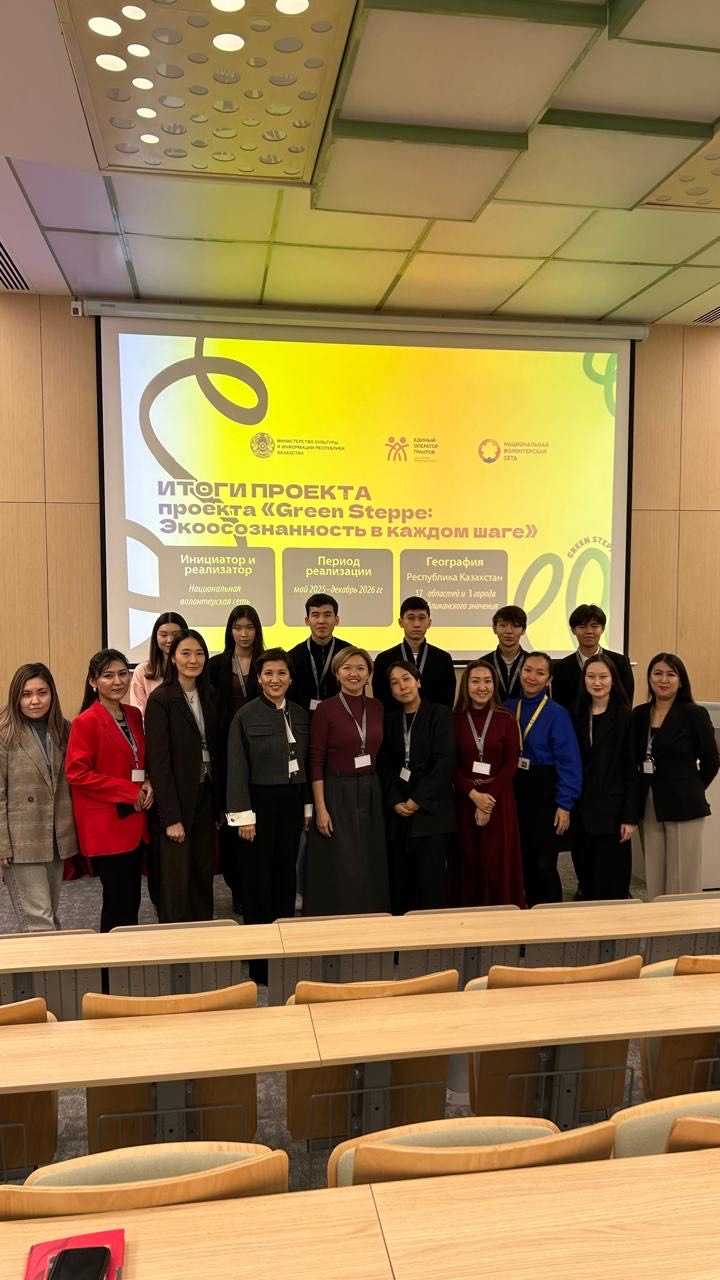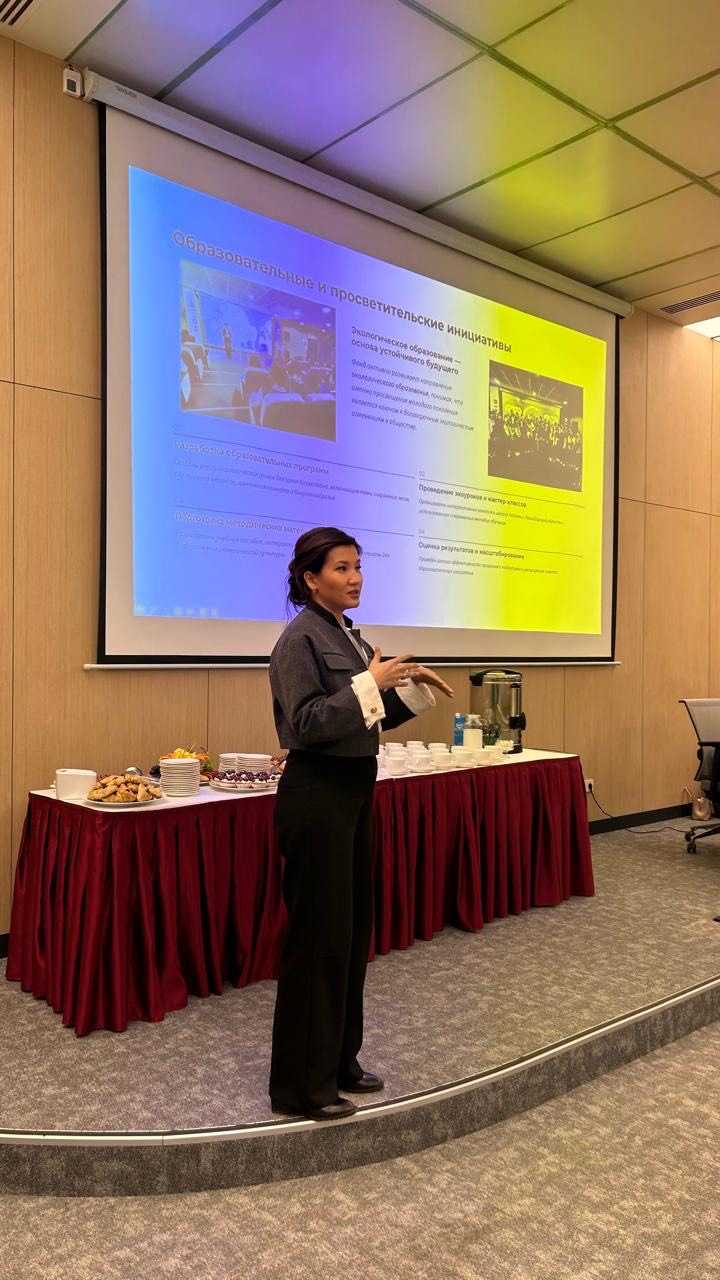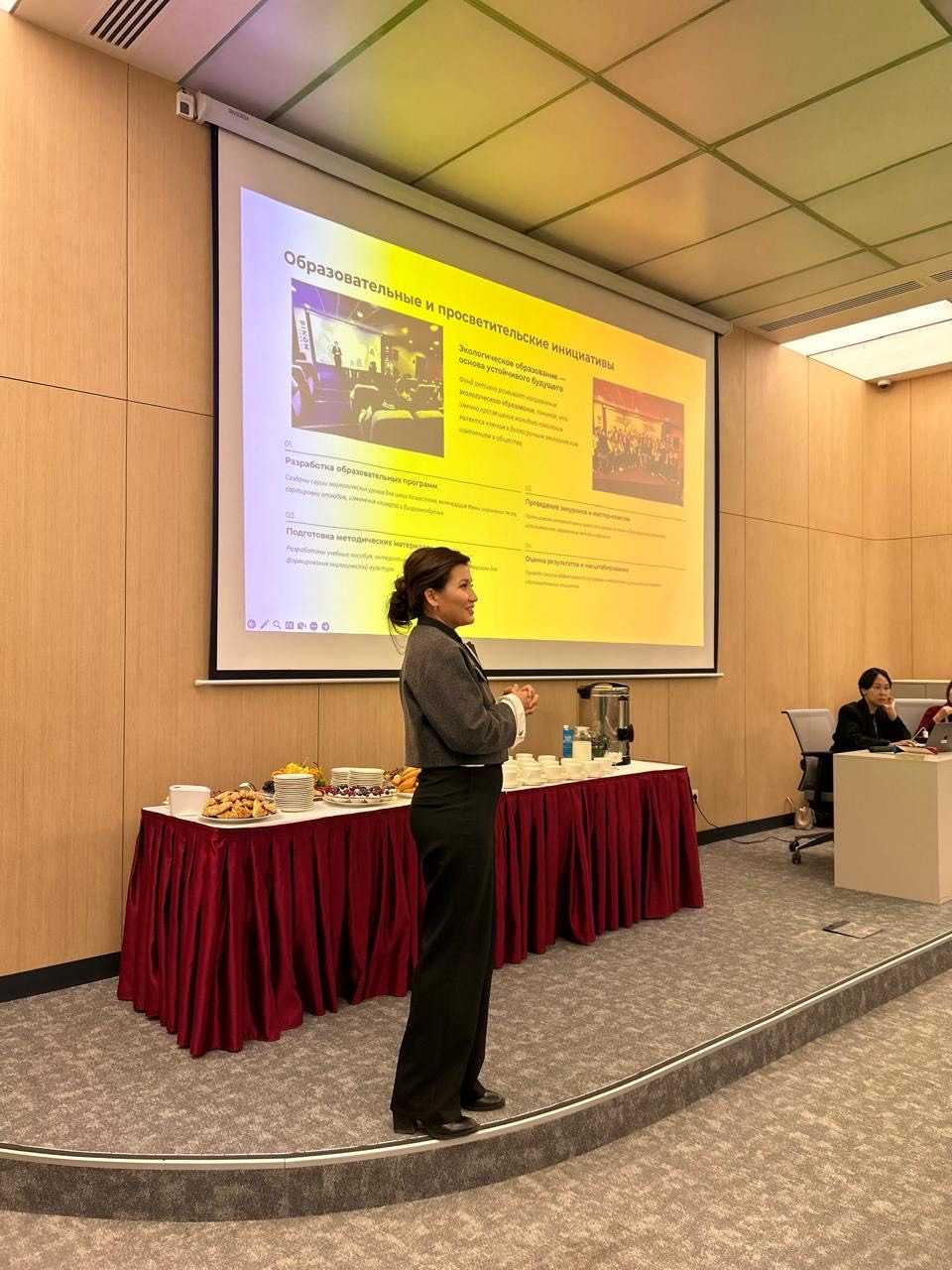On November 21,
Haileybury International School in Astana held a press conference for the
"Green Steppe: Sustainability in Every Step" project, which aims to
develop environmental culture, volunteerism, and sustainable development
principles in Kazakhstan. The event was attended by environmental experts,
regional project coordinators, representatives of educational organizations,
young environmental volunteers, and government agencies.
The press conference
addressed issues of particular relevance to Kazakhstani society. Climate
change, biodiversity loss, air pollution, and overuse of natural resources
require increased environmental responsibility and the development of
environmental education.
Aiman Karabalaeva,
PhD, ecologist and senior lecturer at the School of Natural Sciences at Astana
International University, presented a report on the initiatives being
implemented as part of the "Zhas Galym" project. She emphasized the
scientific basis for ecosystem restoration programs and noted the importance of
engaging young people in environmental activities. Sholpan Bisembayevna
Abilova, PhD, a senior lecturer at HSE AIU, presented a report on
"Biodiversity Conservation," focusing on the need to maintain the
natural balance, protect rare species, and foster environmental responsibility
in society.
Aidana Salamatkyzy
Kydyrova, a doctoral student at HSE AIU, and an ecologist and environmental
activist, proposed practical methods for promoting an eco-friendly lifestyle
among schoolchildren and young people. She emphasized that developing
environmental habits from an early age is key to achieving sustainable
development in the future.
Results in
Sustainable Development Areas
Over the course of
its first year, the "Green Steppe" project has united thousands of
young volunteers and become a platform for dozens of environmental initiatives.
Eco-clubs have been established in many schools, and environmental education has
reached a new systemic level.
The project has
demonstrated concrete results across the UN Sustainable Development Goals:
• SDG 4: Quality
Education: training modules aimed at increasing environmental literacy are
being introduced;
• SDG 11 Sustainable
Cities: the number of environmental projects in urban areas has increased;
• SDG 13 Climate
Action: tree planting, waste management, and nature restoration campaigns are
held regularly;
• SDG 15 Life on
Land: initiatives to protect rare species and develop nature reserves are
supported;
• SDG 17 Partnership:
cooperation between government agencies, educational institutions, NGOs, and
volunteer movements is strengthened.
A Step Toward a Green
Future
The press conference
demonstrated the importance of open dialogue in fostering environmental
awareness in society. The meeting of experts, educators, and young people
provided a platform for discussing new ideas and exchanging experiences in
sustainable development.
Caring for the
environment is a shared responsibility of society as a whole, not just
individual organizations or specialists. Projects like "Green Steppe"
help develop environmental awareness and foster a responsible attitude toward
nature among young people.



